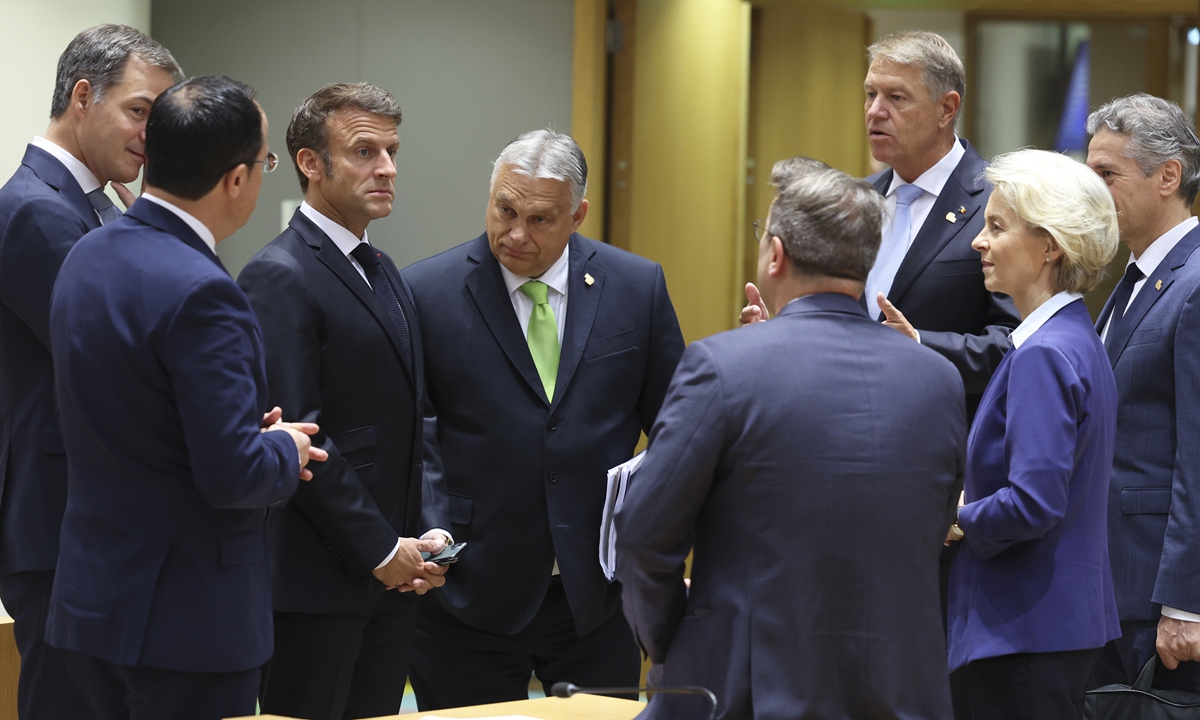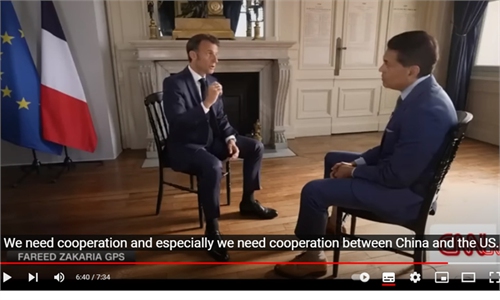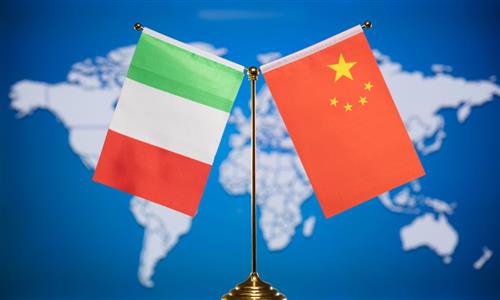
From left to right: Belgium's Prime Minister Alexander De Croo, Cypriot President Nikos Christodoulides, France's President Emmanuel Macron, Hungary's Prime Minister Viktor Orban, Luxembourg's Prime Minister Xavier Bettel, Romania's President Klaus Werner Ioannis, European Commission President Ursula von der Leyen and Slovenia's Prime Minister Robert Golob during a round table meeting at the European Council building in Brussels, Friday, June 30, 2023. Photo: VCG
European Union leaders pledged to "de-risk" but maintain engagement with China after a two-day key summit in Brussels which concludes on Friday, but debate over what "de-risking" means and where it will be applied will continue inside the bloc and cause ups and downs in the China-EU relationship, observers said.
As the 27-member bloc seeks a united China approach in a more geopolitical and contested world, experts stressed that EU policymakers should be wary of making a "decoupling" push under the guise of "de-risking" and act out of the comprehensive and long-term interests of the EU.
In conclusions released after the summit, the EU said it will reduce critical dependencies and vulnerabilities, including in supply chains, and "de-risk and diversify where necessary and appropriate, in order to achieve a balanced, reciprocal and mutually beneficial economic relationship."
"De-risking, but not decoupling. This is the message on China from this European Council. I welcome the endorsement by EU Heads of State and Government for this new approach to China," European Commission President Ursula von der Leyen said in a Twitter post on Friday.
In a letter to EU leaders ahead of the summit, EU Council President Charles Michel said discussions on China would give an opportunity to "reconfirm" the bloc's "broad and united stance" toward the country.
Differences are apparent between countries such as France and Germany, with sizeable business interests in China and which Chinese Premier Li Qiang just visited in his first overseas trip, and Lithuania, with a chilly China relationship caused by rows over the island of Taiwan.
There is an internal divergence on a united China approach, as well as on where and to what extent the "risk" is, analysts said.
Cui Hongjian, director of the Department of European Studies at the China Institute of International Studies, told the Global Times that when the US is roping transatlantic allies into its rivalry with China, European countries should not be carried away by the so-called de-risking rhetoric, but need to look ahead for more development opportunities.
Premier Li, during his Europe visit, stressed, "Failure to cooperate is the biggest risk, and failure to develop is the biggest insecurity." In his address to the Summer Davos Forum in Tianjin on Tuesday, Li noted that de-risking and reducing interdependence is a "false proposition" as the global economy has "already become intertwined."
Zhao Junjie, a research fellow at the Chinese Academy of Social Sciences' Institute of European Studies, told the Global Times on Friday that the EU has long been entangled in a policy paradox - engaging with China to gain substantial benefits, while standing with the US for security and values.
But the paradox has become increasingly fierce and the EU is struggling to navigate through the geopolitical complexity, Zhao said, as he urged the bloc to think comprehensively and with greater vision.
The "de-risking" push, be it from outside forces or China hawks inside the EU, has a pan-politicization, pan-ideology, and pan-security tendency, analysts said, warning that if the EU fails to elaborate on the concept and act cautiously, the negative aspects of the China-EU relations would override the positives and severely undermine the cooperation foundation.



